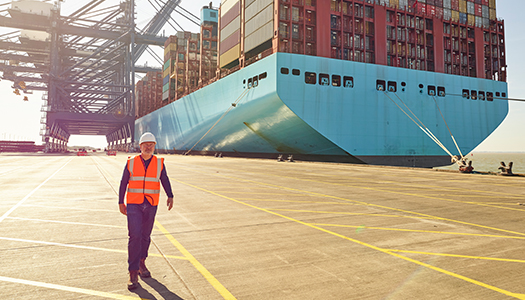- Home
- Career Overview
-
Looking
-
Applying
- College Overview
-
Planning
-
Applying
-
Paying
-
Attending
- Military Overview
-
Joining
-
Serving
INDUSTRY:
A career in this industry might include driving trucks, trains, or aircraft. It may also include maintaining delivery systems or repair for vehicles in a distribution network.
There are 65 careers in this industry

Operate industrial trucks or tractors equipped to move materials around a warehouse, storage yard, factory, construction site, or similar location.
Manually move freight, stock, luggage, or other materials, or perform other general labor. Includes all manual laborers not elsewhere classified.
Drive a light vehicle, such as a truck or van, with a capacity of less than 26,001 pounds Gross Vehicle Weight (GVW), primarily to pick up merchandise or packages from a distribution center and deliver. May load and unload vehicle.
Drive electric, diesel-electric, steam, or gas-turbine-electric locomotives to transport passengers or freight. Interpret train orders, electronic or manual signals, and railroad rules and regulations.
Analyze and coordinate the ongoing logistical functions of a firm or organization. Responsible for the entire life cycle of a product, including acquisition, distribution, internal allocation, delivery, and final disposal of resources.
Analyze product delivery or supply chain processes to identify or recommend changes. May manage route activity including invoicing, electronic bills, and shipment tracing.
Design or analyze operational solutions for projects such as transportation optimization, network modeling, process and methods analysis, cost containment, capacity enhancement, routing and shipment optimization, or information management.
Diagnose, adjust, repair, or overhaul mobile mechanical, hydraulic, and pneumatic equipment, such as cranes, bulldozers, graders, and conveyors, used in construction, logging, and mining.
Repair and adjust electrical and mechanical equipment of inboard or inboard-outboard boat engines.
Operate small motor-driven boats. May assist in navigational activities.